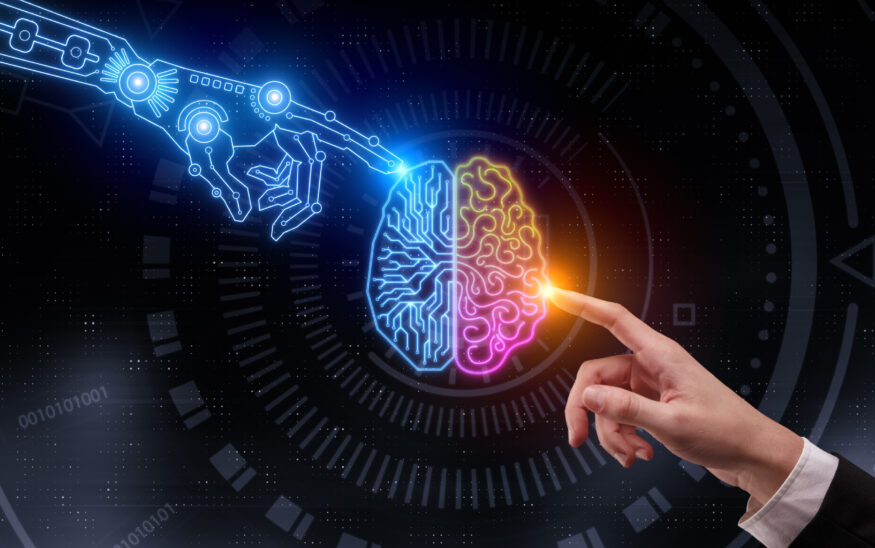AI Revolution: Unveiling the Transformative Power and Unforeseen Consequences
AI isn't necessarily the problem. But, we can't say the same for the people controlling this technology.
Jeff Rundles //July 12, 2023//


AI Revolution: Unveiling the Transformative Power and Unforeseen Consequences
AI isn't necessarily the problem. But, we can't say the same for the people controlling this technology.
Jeff Rundles //July 12, 2023//
The technology buzz over the last several months is the rapid revolution of AI (artificial intelligence) and such new manifestations of it like ChatGPT (Generative Pre-trained Transformer) that, it is said, can draw on the vast universe of all human knowledge to generate human-like writing and question responses/answers at super-human speed. AI can, apparently, also write its own computing code to solve challenges instantaneously; apparently AI is capable, or soon will be, of performing tasks in mere minutes that it would take actual human engineers a billion hours to complete. Just so you know, a billion hours is 114,155.251 years.
READ: AI in Insurance: How New Technologies are Changing the Game
I’ve been reading up on AI and the related robotics developments tied to it, and I watched the “60 Minutes” report from Scott Pelley on AI, and I have naturally been astounded by the leaps in technology. Thrillingly, the developers of AI point out the enormous and powerful potential benefits of the technology, like giant leaps in medicine and combating climate change and a host of other worthy challenges. I have also been horrified by the declarations of the people at such firms as Google developing AI that even they don’t quite fully understand how it is capable of the things it is doing.
It strikes me that this is all the plot of scores of movies and several episodes of “The Twilight Zone” where people invent machines that eventually figure out they don’t need people at all. As “Twilight Zone” creator Rod Serling so presciently put it more than 60 years ago at the end of one such episode, “… too often man becomes clever instead of becoming wise, he becomes inventive, but not thoughtful. And sometimes … he can create himself right out of existence.” Cue the creepy “Twilight Zone” music…
So what is AI? I went to the new Microsoft Bing Chat bot and requested a short paragraph explaining AI, and it generated: “Artificial intelligence is a branch of computer science that focuses on building and managing technology that can learn to autonomously make decisions and carry out actions on behalf of a human being. AI refers to the simulation of human intelligence in machines that are programmed to think like humans and mimic their actions. The term may also be applied to any machine that exhibits traits associated with a human mind such as learning and problem-solving.”
That last bit worried me in that “traits associated with the human mind” can also, obviously, include callousness, malevolence, cruelty, violence and, most problematically, very narrow self-interest. I also asked the Bing chat bot to address the dangers of AI, and it replied: “invasion of personal data, risk of cyber attack, discrimination and bias, opacity and lack of transparency, replacement of jobs and unemployment, and socioeconomic inequality.” Then it added: “We need to ensure that AI is developed and deployed in a way that respects human dignity, rights, and interests.” The damn thing scares even itself!
READ: AI in Employment — A Troubling Issue in the Hiring Process
In the end I don’t really worry about the technology and the machines themselves, as they have no real built-in egos and agendas. But the people who control them do have egos, and personal and business motivations. That, I believe, is the real issue here: the too-few people involved in the creation and deployment of these technologies are automatically and inexorably suspect. And we don’t seem to have any real checks and balances in place.
These few developers — Google, Microsoft, a micro set of startups and a few companies in Europe and China — all give out the same earnest platitudes that they are protecting privacy and security, while at the same time setting a goal of creating more jobs than they supplant. They are, so they say, benevolent.
Big oil said the same 100 years ago, but clearer minds thought the monopoly was so threatening that we broke up Standard Oil. That was just oil — Artificial Intelligence is everything.
No matter what they do or say, the business motivation can and will be, at least in part, a stark contrast to public interest.
We would do well to revisit the cartoonist Walt Kelly’s response to pollution on the first Earth Day. Looking at all the trash, he had his famous character Pogo say: “We have met the enemy and he is us.”
 Jeff Rundles is a former editor of ColoradoBiz and a regular columnist. Read this and Rundles’ blog, Executive Wheels, at cobizmag.com or email him at [email protected].
Jeff Rundles is a former editor of ColoradoBiz and a regular columnist. Read this and Rundles’ blog, Executive Wheels, at cobizmag.com or email him at [email protected].

























